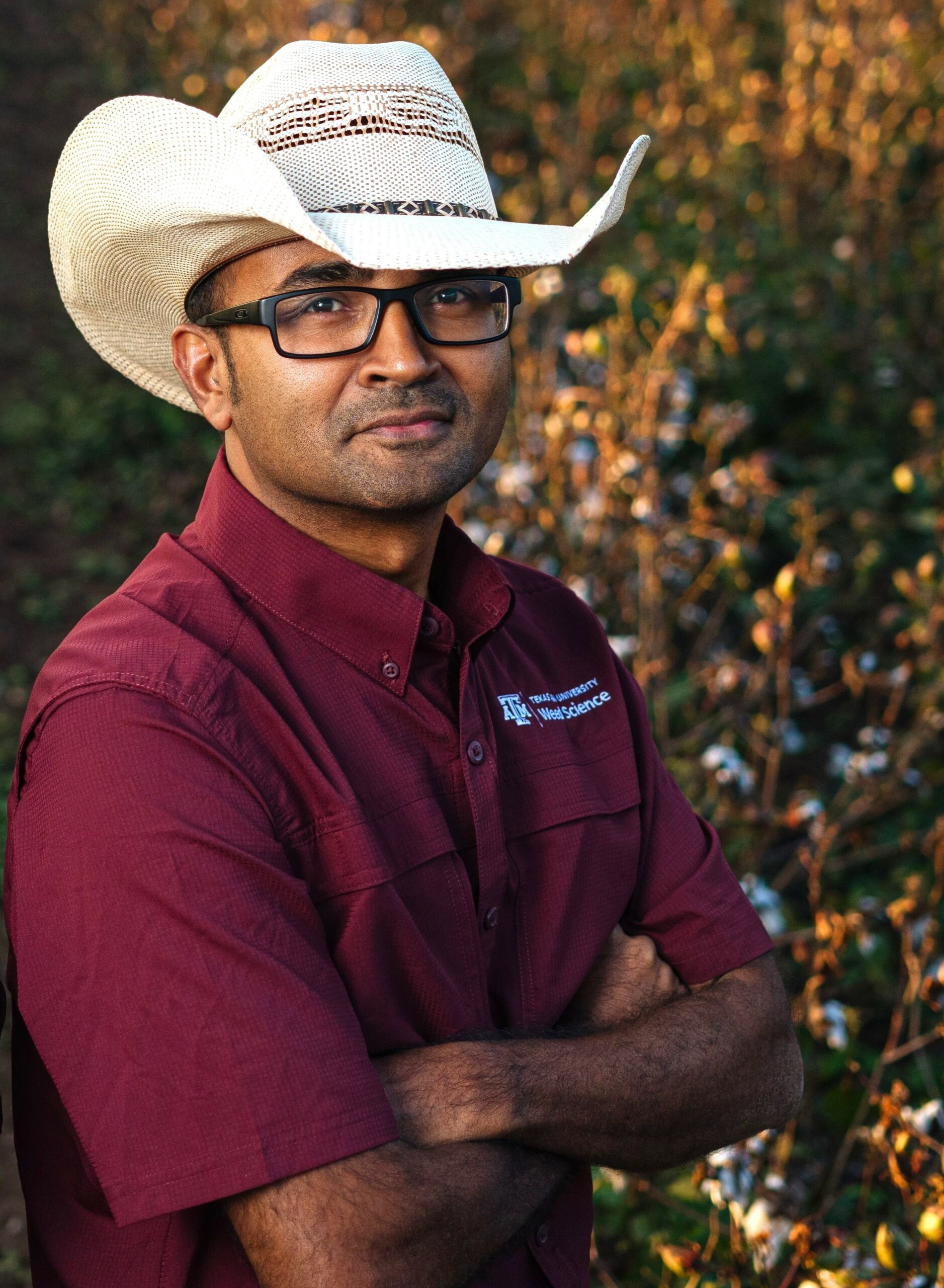Dr. Muthukumar Bagavathiannan is one of seven recent USDA grantees to be awarded a $10
million coordinated agricultural projects grant.
Posted on September 4, 2024

WESTMINSTER, Colorado – 4 September 2024 – The Weed Science Society of America (WSSA) applauds its member-scientist and Texas A&M University Agronomy Professor, Muthukumar Bagavathiannan, Ph.D., for a recent $10 million coordinated agricultural project grant award from the U.S. Department of Agriculture (USDA) National Institute of Food and Agriculture (NIFA) to pursue climate-smart cotton production research.
“All of us at WSSA are both grateful to the USDA for its Visionary Sustainable Agricultural Research funding and ecstatic for Dr. Bagavathiannan for this opportunity to discover more
sustainable ways to advance climate-smart agricultural practices, to include controlling weeds,” says Greg Dahl, WSSA President. “We’re especially interested in the grant being used to develop and evaluate precision farming, artificial intelligence, machine learning and smart
technologies, which could be adapted for any crop or land-management use, in addition to cotton production, to help with resource conservation and climate-change mitigation.”
NIFA awarded the Texas A&M Climate-Smart Cotton grant as part of its Agriculture and Food
Research Initiative, and Sustainable Agricultural Systems program area with the goal “to transform the U.S. food and agricultural system and sustainably increase agricultural production in ways that also reduce its environmental footprint.” More specifically, Dr. Bagavathiannan is leading a project team that “seeks to transform cotton production in the southern United States into a more sustainable, climate-smart enterprise by applying improved precision management practices to increase carbon sequestration and reduce greenhouse gas emissions; enhance pest control, and nutrient and water management; and address labor challenges while creating new market opportunities.”
